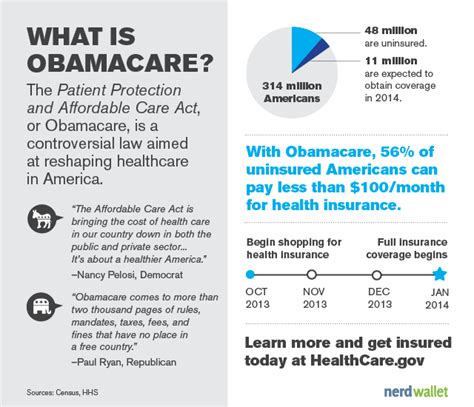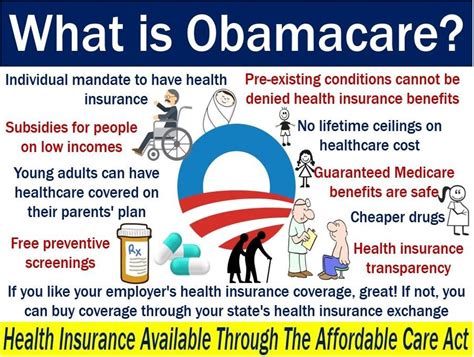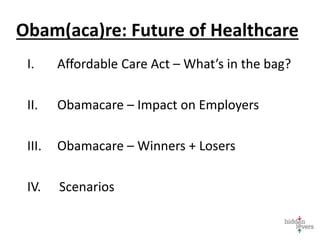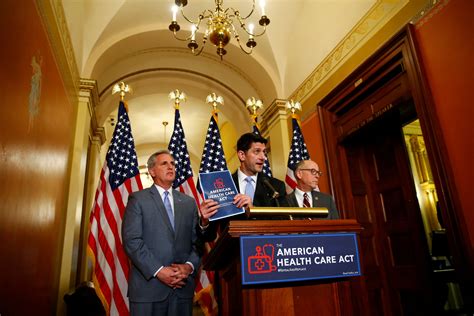Intro
The Affordable Care Act, commonly known as Obamacare, has been a significant milestone in the US healthcare system since its implementation in 2010. This comprehensive healthcare reform aimed to increase healthcare accessibility and affordability for millions of Americans. The law has undergone several changes and challenges, but its core objective remains the same: to provide quality healthcare to those who need it most. As we delve into the world of Obamacare medical insurance, it's essential to understand its importance and how it has impacted the lives of many Americans.
The importance of Obamacare cannot be overstated. Before its introduction, many Americans struggled to access healthcare due to exorbitant costs or pre-existing conditions that made it difficult to secure insurance. The law has bridged this gap by providing subsidies to low-income individuals and families, expanding Medicaid, and prohibiting insurance companies from denying coverage based on pre-existing conditions. As a result, millions of Americans have gained access to healthcare, and the uninsured rate has decreased significantly. The impact of Obamacare is far-reaching, and its benefits extend beyond just the individual to the broader economy and society as a whole.
The working mechanism of Obamacare is complex, but its primary goal is to make healthcare more affordable and accessible. The law established health insurance marketplaces where individuals and small businesses can purchase plans that meet minimum essential coverage requirements. These plans are categorized into different tiers, including bronze, silver, gold, and platinum, each with varying levels of coverage and out-of-pocket costs. Additionally, Obamacare introduced the individual mandate, which requires most Americans to have minimum essential coverage or face a penalty. Although the individual mandate was repealed in 2019, the law remains in place, and many Americans continue to benefit from its provisions.
Understanding Obamacare Medical Insurance

To understand Obamacare medical insurance, it's crucial to familiarize yourself with the different types of plans available. These plans are designed to cater to various needs and budgets, ensuring that everyone can find a plan that suits them. The most common types of plans include:
- Health Maintenance Organization (HMO) plans: These plans require you to receive care from a specific network of providers, except in emergency situations.
- Preferred Provider Organization (PPO) plans: These plans offer more flexibility, allowing you to see any healthcare provider, both in-network and out-of-network, although out-of-network care typically costs more.
- Exclusive Provider Organization (EPO) plans: These plans combine elements of HMO and PPO plans, offering a network of providers but also allowing you to see out-of-network providers at a higher cost.
- Catastrophic plans: These plans are designed for young adults or those who cannot afford other types of coverage, offering limited benefits at a lower cost.
Benefits of Obamacare Medical Insurance

The benefits of Obamacare medical insurance are numerous, and they have positively impacted the lives of many Americans. Some of the key benefits include:
- Increased accessibility: Obamacare has expanded healthcare coverage to millions of Americans, including those with pre-existing conditions.
- Improved affordability: The law provides subsidies to low-income individuals and families, making healthcare more affordable.
- Essential health benefits: Obamacare requires all plans to cover essential health benefits, including doctor visits, hospital stays, and preventive care.
- No lifetime limits: Insurers can no longer impose lifetime limits on coverage, ensuring that individuals with chronic conditions or serious illnesses receive the care they need.
How to Enroll in Obamacare Medical Insurance

Enrolling in Obamacare medical insurance is a straightforward process, and there are several ways to do so. You can:
- Visit the official healthcare marketplace website (HealthCare.gov) to explore plans and enroll online.
- Contact a licensed insurance agent or broker for guidance and support.
- Reach out to a local health insurance navigator or counselor for free assistance.
- Call the marketplace call center for phone support.
The open enrollment period typically runs from November to December, although special enrollment periods may be available for those who experience qualifying life events, such as losing job-based coverage or getting married.
Common Challenges and Criticisms

Despite its many benefits, Obamacare has faced several challenges and criticisms. Some of the common concerns include:
- High premiums: Many Americans have seen their premiums increase over the years, making healthcare less affordable.
- Limited provider networks: Some plans have narrow networks, limiting access to certain healthcare providers.
- Complexity: The law is complex, and navigating the system can be overwhelming for some individuals.
- Repeal efforts: Obamacare has faced repeated repeal attempts, creating uncertainty and instability in the healthcare market.
Future of Obamacare Medical Insurance

The future of Obamacare medical insurance is uncertain, but it remains a vital part of the US healthcare system. Efforts to repeal and replace the law have been unsuccessful, and many Americans continue to rely on Obamacare for their healthcare needs. As the healthcare landscape evolves, it's essential to address the challenges and criticisms surrounding the law, working towards a more sustainable and equitable healthcare system.
Some potential solutions to improve Obamacare include:
- Increasing funding for subsidies and cost-sharing reductions to make healthcare more affordable.
- Expanding Medicaid to cover more low-income individuals and families.
- Implementing measures to stabilize the insurance market and reduce premiums.
- Improving the user experience and simplifying the enrollment process.
Conclusion and Next Steps

In conclusion, Obamacare medical insurance has been a game-changer for millions of Americans, providing access to quality healthcare and financial protection. While challenges and criticisms remain, it's essential to build upon the law's successes and work towards a more comprehensive and sustainable healthcare system. As we move forward, it's crucial to prioritize affordability, accessibility, and simplicity, ensuring that healthcare is a right, not a privilege.
We invite you to share your thoughts and experiences with Obamacare medical insurance. Have you benefited from the law, or do you face challenges in accessing healthcare? What changes would you like to see in the future? Join the conversation and help shape the future of healthcare in America.
What is Obamacare, and how does it work?
+Obamacare, also known as the Affordable Care Act, is a healthcare reform law that aims to increase healthcare accessibility and affordability for millions of Americans. It works by providing subsidies to low-income individuals and families, expanding Medicaid, and prohibiting insurance companies from denying coverage based on pre-existing conditions.
How do I enroll in Obamacare medical insurance?
+To enroll in Obamacare medical insurance, you can visit the official healthcare marketplace website (HealthCare.gov), contact a licensed insurance agent or broker, or reach out to a local health insurance navigator or counselor for free assistance.
What are the benefits of Obamacare medical insurance?
+The benefits of Obamacare medical insurance include increased accessibility, improved affordability, essential health benefits, and no lifetime limits. The law also provides subsidies to low-income individuals and families, making healthcare more affordable.
